
Cuisine
Taiwanese cuisine
Taiwanese cuisine is a fusion of Chinese and indigenous Taiwanese cuisines, with influences from Japan and Southeast Asia. It is characterized by its use of fresh ingredients, bold flavors, and a wide variety of cooking techniques. Taiwanese cuisine is also known for its street food culture, which features a wide variety of snacks and small dishes.
Typical ingredients
Pork, Seafood, Rice, Noodles, Vegetables, Soy sauce, Garlic, Ginger, Scallions, Chili peppers
Presentation and garnishing
Taiwanese dishes are often presented in a colorful and artistic manner, with a focus on the balance and harmony of flavors. Garnishes such as fresh herbs and edible flowers are commonly used to enhance the presentation of dishes.
Taiwanese cuisine is a fusion of flavors and ingredients that reflects the region's rich cultural history.
More cuisines from this region...
Japanese cuisine, Korean cuisine, Hong Kong cuisine, Mongolian cuisine, Macanese cuisine
History
Taiwanese cuisine has a rich history that dates back to the indigenous tribes of Taiwan, who developed their own unique cuisine based on the local ingredients and cooking techniques. The cuisine was later influenced by Chinese immigrants, who brought their own culinary traditions to Taiwan. Taiwanese cuisine was also influenced by Japanese colonization, which brought new ingredients and cooking techniques to the region.
Cultural significance
Taiwanese cuisine is an important part of Taiwanese culture, and is celebrated during the annual Taipei Food Festival. The cuisine is also popular in other parts of Asia, as well as in the United States and Canada.
Health benefits and considerations
Taiwanese cuisine includes many healthy options, such as vegetable and seafood dishes. However, some dishes may be high in sodium and fat, and may not be suitable for individuals with certain health conditions.
Taiwanese cuisine dishes Browse all »

Rùn bǐng
Taiwanese Crepe
Rùn bǐng is a traditional Chinese pancake that is typically eaten for breakfast or as a snack. It is made with a thin layer of dough that is filled with a variety of...

Thih-nn̄g
Thih-nn̄g is a traditional Burmese dish made with rice noodles and chicken in a spicy broth.

Oil-Soaked Chicken
Oil-Soaked Chicken is a popular Chinese dish that is loved by many. It is a simple yet delicious dish that is perfect for any occasion.

Ian-chhiâng
Ian-chhiâng Sausage
Ian-chhiâng is a traditional Taiwanese dish made with pork belly that is marinated and then steamed. It is typically served with rice and pickled vegetables.

Hî-ôan
Fish Noodle Soup
Hî-ôan is a Vietnamese dish made from steamed fish and a spicy ginger sauce.

Taiwanese Popcorn Chicken
Taiwanese Popcorn Chicken is a popular street food in Taiwan that consists of bite-sized pieces of chicken that are marinated and then deep-fried until crispy.

Ô-á mī-sòa
Oyster Noodles
Ô-á mī-sòa is a traditional Vietnamese noodle dish that is popular in the central region of the country. It is a flavorful and hearty soup that is perfect for cold weather or...

Siān-hî ì-mī
Meat Sauce Noodles
Siān-hî ì-mī is a popular Taiwanese noodle dish that is known for its rich and savory broth. The dish is made with wheat noodles, pork, and a variety of herbs and spices, and...
Taiwanese cuisine recipes Browse all »

Taiwanese-style Florentines
Taiwanese Almond Florentines: A Delicate Fusion of Italian and Taiwanese Flavors
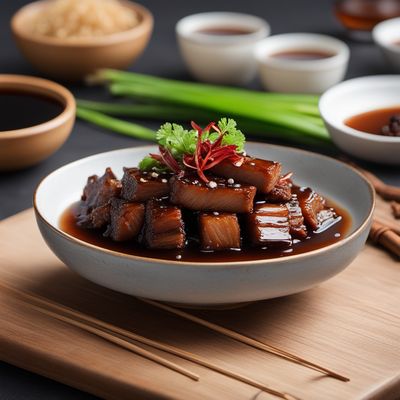
Taiwanese Braised Pork Belly with Soy Sauce
Savory Melts: Taiwanese Soy-Braised Pork Belly

Aiyùbīng - Refreshing Taiwanese Jelly Dessert
Summer Delight: Aiyùbīng - A Taiwanese Jelly Extravaganza

Taiwanese-style Gyros
Taipei Gyro Delight

Taiwanese-style Katsudon
Crispy Pork Cutlet Rice Bowl with Taiwanese Flavors

Taiwanese-style Apple Pie
Golden Crust Apple Delight
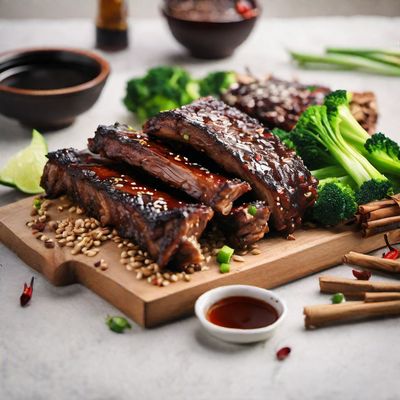
Taiwanese-style Barbecue Ribs
Taiwanese Sticky Pork Ribs: A Sweet and Savory Delight
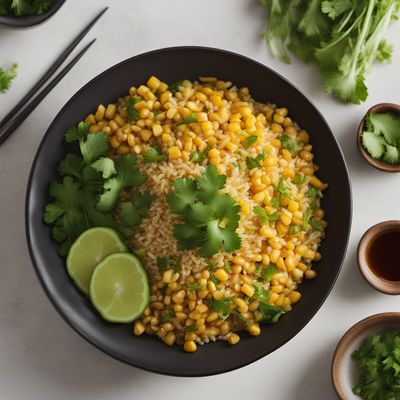
Taiwanese-style Corn Rice
Golden Corn Rice: A Taiwanese Delight

Taiwanese Mala Sauce
Fiery Flavors: Taiwanese Mala Sauce
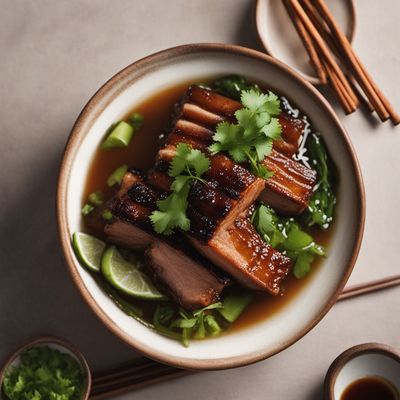
Tōa-tn̂g pau sió-tn̂g with Braised Pork Belly
Savory Delight: Braised Pork Belly in Tōa-tn̂g pau sió-tn̂g Style
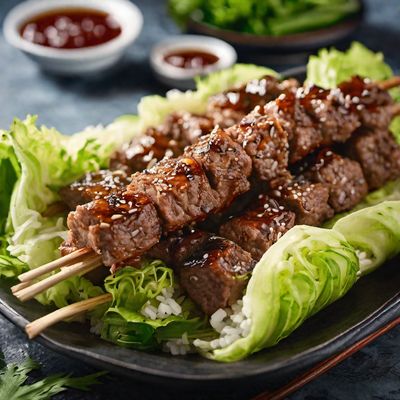
Taiwanese-style Souvlaki
Taiwanese-inspired Grilled Skewers with a Greek Twist

Taiwanese-style Sachertorte
Taiwanese Black Tea Chocolate Cake